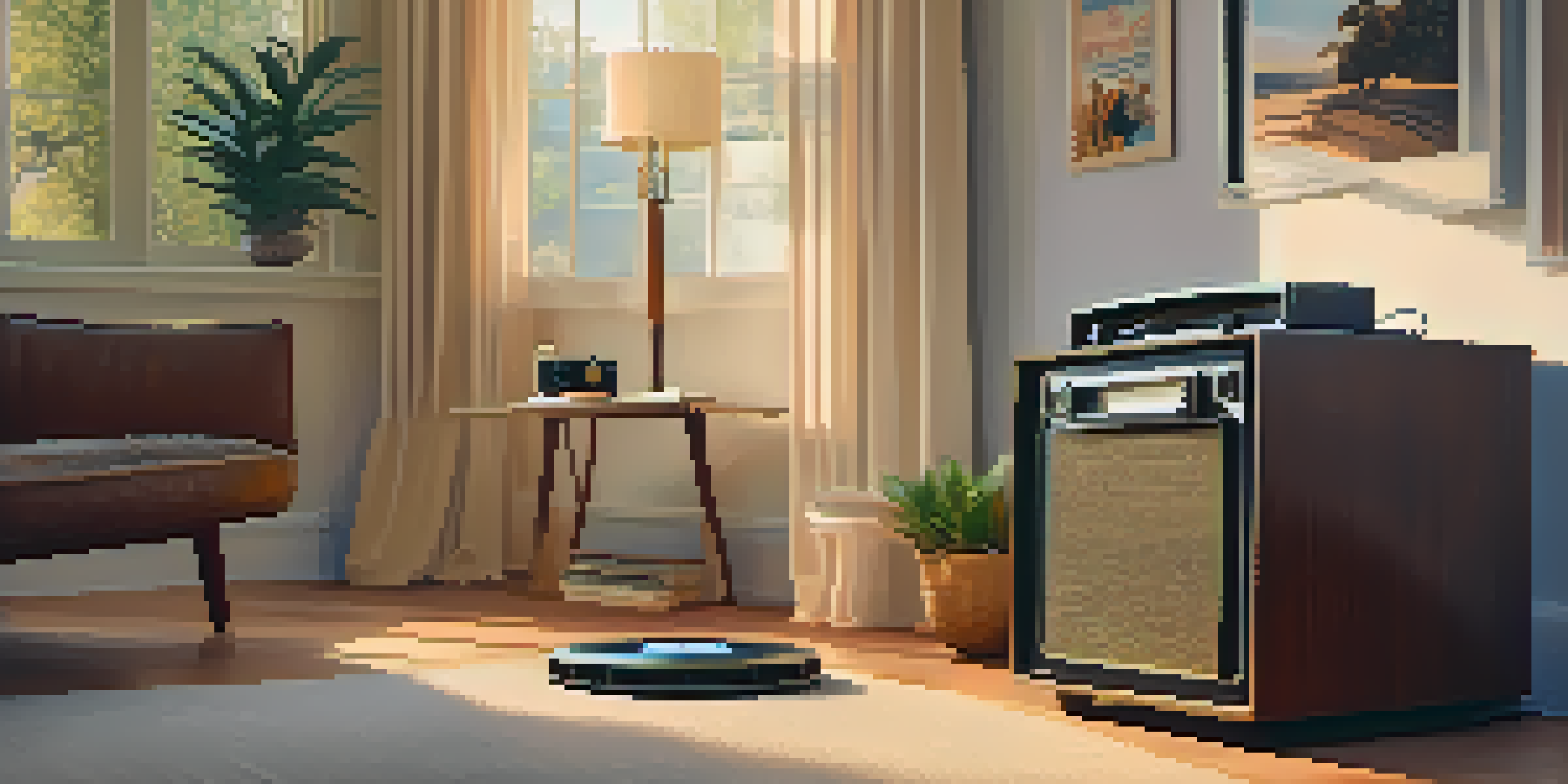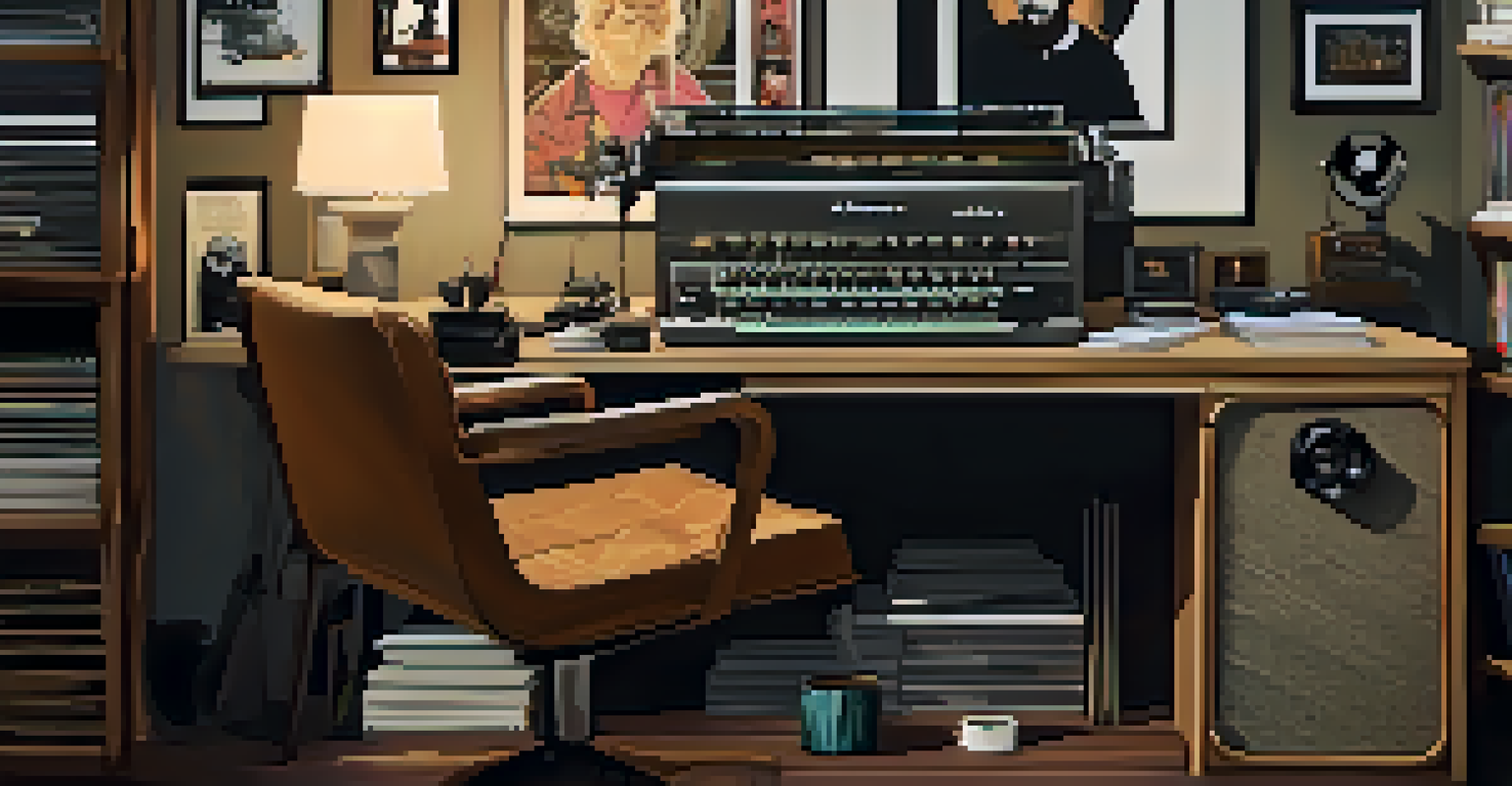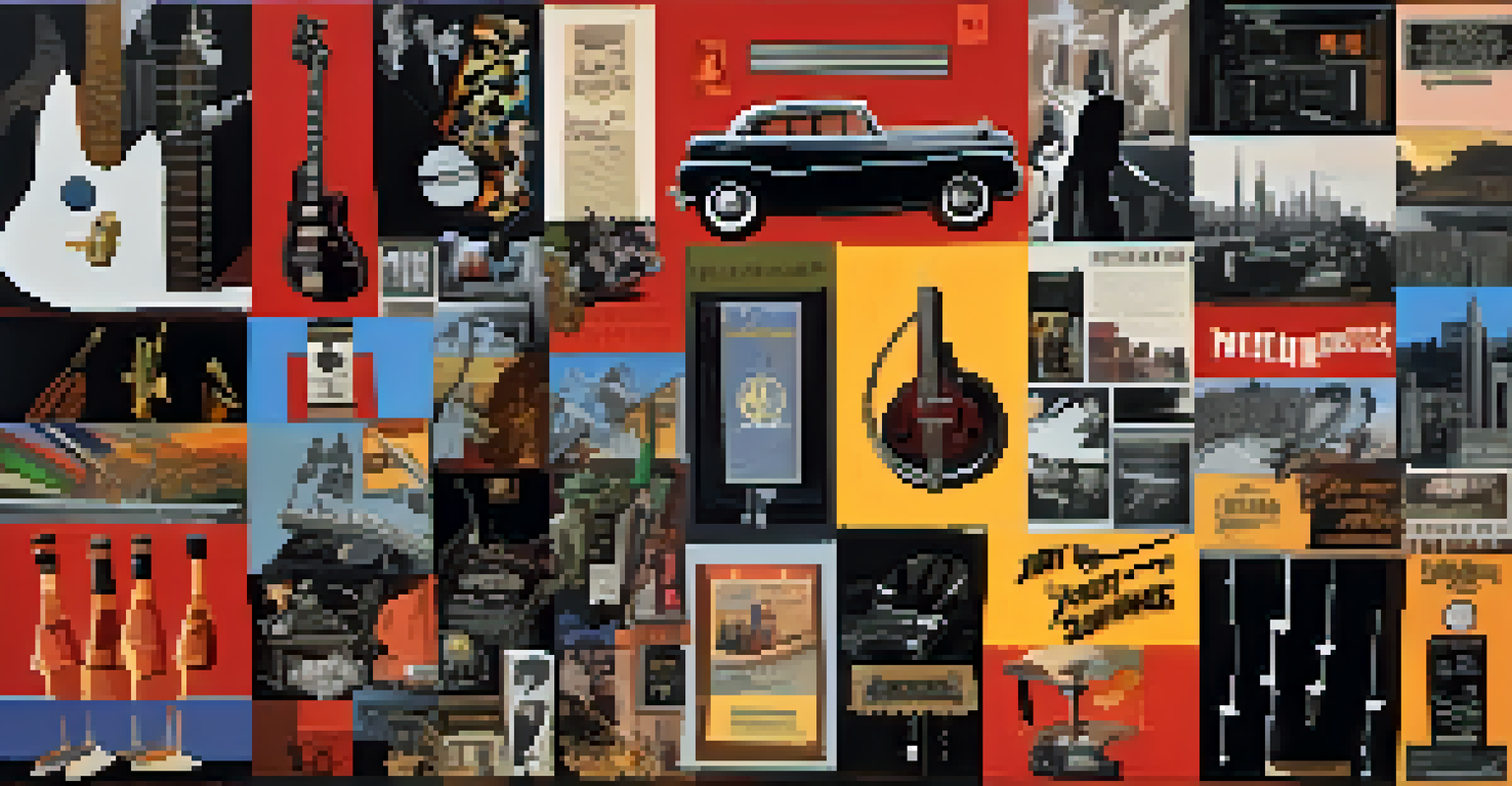The Significance of Classic Soundtracks in Today's Movies

The Emotional Power of Music in Film
Music has the incredible ability to evoke emotions, and in film, it amplifies the storytelling. Think about how a simple melody can make your heart race or bring tears to your eyes. Classic soundtracks, like those from 'Star Wars' or 'The Godfather,' have mastered this art, creating unforgettable moments that resonate long after the credits roll.
Music can change the world because it can change people.
These iconic scores not only enhance scenes but also shape viewer perceptions. For instance, the suspenseful strings in 'Psycho' instantly set a mood, guiding audience reactions. By utilizing classic soundtracks, filmmakers today benefit from pre-existing emotional connections with the audience, making the viewing experience more impactful.
Moreover, music is often tied to our memories, and classic soundtracks can transport us back to our first viewing experiences. This nostalgia can deepen our engagement with new films that reference or incorporate these timeless scores, creating a bridge between generations of movie lovers.
Nostalgia: A Powerful Marketing Tool
Nostalgia is a compelling force in marketing, and classic soundtracks play a crucial role in this phenomenon. When a film features music from a beloved classic, it can immediately attract an audience eager to relive those cherished memories. This strategy is evident in films like 'Guardians of the Galaxy,' where retro hits evoke a sense of familiarity and joy.

Using classic tracks can also create buzz around a film, as audiences discuss and share their favorite songs. This word-of-mouth marketing can be incredibly effective, driving ticket sales and streaming views. By tapping into the emotions associated with these songs, filmmakers can create a stronger connection with their audience.
Music Enhances Film Storytelling
Classic soundtracks evoke emotions and deepen viewer engagement, making the storytelling experience more impactful.
Moreover, the resurgence of vinyl records and classic music in popular culture has made soundtracks a hot topic. People not only enjoy watching movies but also collecting the music, making classic soundtracks an integral part of the film industry's marketing strategy.
Cultural References and Homage
Classic soundtracks often serve as cultural touchstones, allowing filmmakers to pay homage to influential works. When a modern film incorporates a recognizable score, it connects to a broader cinematic history, enriching the viewer's experience. For example, the use of Ennio Morricone's compositions in Quentin Tarantino's films creates a dialogue with past cinema.
Without music, life would be a mistake.
These references can also introduce new audiences to classic films. By featuring iconic soundtracks, filmmakers spark curiosity about the originals, leading viewers to explore the rich history of cinema. This cross-generational appreciation fosters a deeper understanding of film as an art form.
Additionally, the clever use of classic soundtracks can add layers to a film’s narrative. A well-placed song can enhance character development or highlight themes, making the story more engaging. Filmmakers today are adept at using these tools to create a richer cinematic experience.
The Role of Soundtracks in World-Building
In many films, soundtracks are essential for establishing the world in which the story unfolds. Classic scores often convey the tone and atmosphere, drawing viewers into the film's universe. For instance, the sweeping orchestral arrangements in 'The Lord of the Rings' not only build tension but also create a sense of grandeur and adventure.
These soundtracks help to ground fantastical stories in reality, making them more relatable. By using familiar melodies, filmmakers can evoke specific feelings and expectations, guiding the audience's journey through the narrative. This technique allows even the most outlandish stories to feel authentic and immersive.
Nostalgia Drives Audience Connections
Utilizing classic tracks in modern films taps into audience nostalgia, creating a powerful marketing tool that boosts interest and ticket sales.
Furthermore, the integration of classic soundtracks can enhance the visual storytelling. Music and visuals work together to create a cohesive experience, immersing the audience in the film's world. This synergy is vital for engaging viewers on multiple levels, making them feel like active participants in the story.
The Evolution of Soundtrack Technology
As technology evolves, so do the ways we experience soundtracks in films. From vinyl to digital streaming, the accessibility of classic soundtracks has transformed how audiences engage with music. This change allows filmmakers to incorporate a vast array of classic pieces into their modern storytelling.
Moreover, advancements in sound design enable filmmakers to blend classic soundtracks with innovative soundscapes. This fusion creates a unique auditory experience that enhances the emotional impact of a film. Think about how the use of surround sound in theaters brings classic scores to life, enveloping viewers in rich, immersive sound.
Additionally, the rise of platforms like Spotify and Apple Music has made it easier for audiences to discover and enjoy classic soundtracks. As listeners curate their playlists, they often revisit the music from their favorite films, reinforcing the connection between classic soundtracks and modern cinema.
Influence of Classic Soundtracks on Film Genres
Different film genres often lean on classic soundtracks to define their identity. For instance, the use of jazz in film noir creates an atmosphere of intrigue and sophistication. Similarly, classic rock anthems are often featured in action films, amplifying adrenaline-fueled moments.
By drawing from these established musical styles, filmmakers can communicate genre expectations to the audience. This connection helps viewers understand the tone and direction of the film from the very beginning. For example, a horror film that incorporates eerie classical music instantly sets a chilling mood.
Classic Scores Shape Film Genres
Different film genres leverage classic soundtracks to set the tone and expectations, enriching the overall cinematic experience.
Furthermore, the blend of classic soundtracks with modern genres can lead to exciting new interpretations. Filmmakers often experiment with these combinations, creating fresh takes on traditional narratives. This evolution keeps cinema dynamic and engaging, appealing to both nostalgic viewers and new audiences.
The Future of Classic Soundtracks in Film
As we look to the future, classic soundtracks will continue to play a significant role in cinema. With new films frequently referencing or remixing beloved scores, the cycle of inspiration and nostalgia is likely to persist. This trend not only honors past works but also enriches the viewing experience for modern audiences.
Moreover, as filmmakers become more innovative in their approach to soundtracks, we may see a fusion of classic and contemporary styles. This blend can create fresh and exciting auditory experiences, expanding the boundaries of film music. It’s an exciting time for soundtracks, as the possibilities for creativity are endless.

Finally, as new generations of filmmakers rise, they'll carry forward the legacy of classic soundtracks. By paying tribute to the past while pushing boundaries, they’ll ensure that the emotional power of music in film remains a vital part of storytelling for years to come.